Reishi Mushrooms: The Age-Old Curative for Contemporary Health
Posted on July 17 2025,
In an age of fast-paced lives, environmental pressures, and chronic exhaustion, many people are turning to traditional healing methods in an attempt to find a natural way to regain vitality and balance. The Reishi mushroom, sometimes referred to as the "Mushroom of Immortality," is one of the most prized gems of Eastern medicine.
Used for thousands of years across Asia, Reishi (Ganoderma lucidum) is not your average fungus. It's a medicinal mushroom with powerful adaptogenic properties which means it helps the body adapt to stress and restore homeostasis. Whether you're seeking better sleep, immunity, or longevity, Reishi offers a time-tested path to natural wellness.
In this blog, we'll explore:
- The rich history of Reishi mushrooms
- Its bioactive compounds
- Evidence-backed health benefits
- How to consume it safely
- Who should avoid it.
A Journey Through Time: The History of Reishi
The Origin in Chinese Medicine
For more than two millennia, reishi mushrooms have been utilized in Traditional Chinese Medicine (TCM). . Known as Lingzhi in Chinese, it was regarded as a symbol of spiritual potency, divine power, and immortality. Ancient Taoist monks believed that regular consumption of Reishi could lead to enlightenment and longevity.
Reishi was so uncommon in ancient China that only emperors and other members of the royal family could afford it. It was challenging to locate and collect the fungus since it frequently grew on decomposing hardwoods deep within the mountainous forests. Its supernatural reputation was heightened by its rarity.
Reishi appears in Shennong's Materia Medica, one of the earliest known pharmacopoeias from the Han dynasty (~206 BCE – 220 CE), where it's classified as a superior herb, meaning it could be taken regularly to maintain health and prevent illness without side effects.
Japan and Korea's Herbal Legacy
In Japan, Reishi is called "Mannentake" (10,000-year mushroom), and it has been used in Kampo medicine for centuries. The Japanese government officially recognised it as a supplement for cancer and immune support, prompting deeper scientific studies in the mid-20th century.
In Korea, Reishi is called Yeongji, Reishi has long been integrated into tonics, teas, and soups to promote vigour and inner peace.
Modern Rediscovery and Cultivation
Until the 1970s, Reishi was still wild-harvested and challenging to find. However, with the development of successful cultivation techniques, especially in Japan and China, Reishi has become more accessible and affordable.
Today, it's available worldwide in various forms—capsules, powders, teas, tinctures, and even skin care. Ancient healers' claims are starting to be validated by modern research : Reishi is a medicinal marvel.
The Bioactive Powerhouse: What Makes Reishi Special?
Reishi mushrooms are dense with compounds that interact with our physiology in powerful ways:
1. Polysaccharides (especially Beta-glucans)
By boosting white blood cell activity, including that of natural killer cells and macrophages, these promote immunological health.
2. Triterpenoids (Ganoderic acids)
These give Reishi its bitter taste and offer anti-inflammatory, antihistamine, liver-protective, and anti-tumour effects.
3. Peptidoglycans
Known for their immune-modulating properties.
4. Sterols and Alkaloids
These support neurological health and the equilibrium of cholesterol.
These substances work together to make reishi a broad-spectrum adaptogen, which aids the body in overcoming a variety of mental and physical stressors.
Top Health Benefits of Reishi Mushrooms
1. Boosts Immunity
One of Reishi's most studied benefits is its ability to modulate the immune system. It is beneficial for people with autoimmune issues as well as those with compromised immunity since it balances immunological responses rather than overstimulating them.
- Enhances macrophage and T-cell activity
- Supports recovery from viral infections
- Reduces chronic inflammation.
Reishi has also shown promise as an adjuvant treatment for chemotherapy, boosting white blood cell counts and reducing side effects.
2. Supports Deep Sleep and Calms the Mind
In Chinese medicine, reishi is highly valued for its shen-boosting properties, which translate to enhancing "spirit" or mental clarity.
Modern research backs this up:
- It reduces sleep latency (how long it takes to fall asleep).
- Improves sleep quality without sedation.
- Calms the nervous system by lowering cortisol levels.
For those suffering from anxiety, racing thoughts, or insomnia, a cup of Reishi tea before bed can be deeply grounding.
3. Reduces Stress and Enhances Resilience
As an adaptogen, reishi helps the body deal with both physical and emotional stress. It works by regulating your stress molecules through the HPA axis, which includes cortisol and adrenaline.
Regular use may:
- Improve mental focus.
- Reduce fatigue.
- Elevate mood and motivation.
Unlike any other stimulants, Reishi promotes calm energy, which makes it an excellent choice for professionals, students, or anyone who is feeling burned out.
4. Supports the Liver and Detoxification
Reishi's triterpenes have been shown to protect the liver against damage from toxins, alcohol, and medications.
It:
- Enhances liver enzyme activity.
- Aids in detoxification.
- Supports healthy bile flow.
This makes it a valuable ally for those undergoing detox regimens or managing fatty liver.
5. Heart and Circulatory Health
Reishi supports the cardiovascular system by:
- Lowering bad cholesterol (LDL)
- Improving blood circulation
- Reducing blood pressure
Triterpenes are also shown to relax blood vessels, reducing strain on the heart and preventing clot formation.
6. Might Support Cancer Therapies
While not a standalone cure, Reishi is frequently studied for its role in complementary cancer care. Its compounds:
- Inhibit tumour growth in some models
- Stimulate apoptosis (cancer cell death)
- Improve the quality of life during chemotherapy
Japanese hospitals have used Reishi extracts as part of integrative oncology for decades.
How to Take Reishi Mushrooms
Reishi isn't normally eaten like culinary mushrooms. It's tough, woody, and bitter. It is best consumed in concentrated form, such as:
- Tea or decoction (boiled for 30+ minutes)
- Powdered extract in capsules or smoothies
- Tincture (alcohol-based extract)
- Herbal blends with other adaptogens like Ashwagandha or Rhodiola
Dosage:
- General wellness: 1–2 grams/day of extract
- Therapeutic support: 3–5 grams/day
- Always follow product instructions or consult your herbalist.
Are There Any Side Effects?
Reishi is generally safe, especially in its dual-extract or hot-water extract form. However, in rare cases or high doses, some people may experience:
- Dry mouth or throat
- Digestive upset
- Mild dizziness or rash
People on blood thinners or immunosuppressants should consult a doctor before use, as Reishi can amplify or interfere with certain medications.
Women who are nursing or pregnant should also get advice.
Final Thoughts: Is Reishi for You?
In a world craving deeper rest, stronger immunity, and emotional balance, Reishi offers a beautiful bridge between ancient wisdom and modern wellness.
Reishi may be the perfect natural ally your body has been waiting for, whether you're dealing with burnout, bolstering your immune system, or simply seeking that additional glow of vitality.
Majafi Wellness suggests that if you've never used reishi before, start with a straightforward tea or supplement that contains reishi like ours; it should ideally be organic, dual-extracted, and purity verified. At Majafi, we create our famous mushroom-blend elixirs, which are designed to promote immunity, clarity, and serenity, by combining Reishi with other adaptogenic herbs.
Your path to wellness is sacred. Allow the age-old wisdom of nature to accompany you.
You can buy our Reishi-infused elixirs here.

